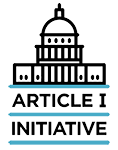A new report examines the Congressional watchdog’s return-on-investment
By Dan Lips, The Lincoln Network
Facing a December 11 deadline to fund the federal government, Congress must finalize its annual spending bills or punt those negotiations into the new year. As lawmakers negotiate on Capitol Hill, taxpayers should keep an eye on one small line item in the federal budget.
Last year, taxpayers spent $640 million dollars on the Government Accountability Office (GAO). Led by Comptroller General Gene Dodaro, GAO serves as Congress’s watchdog, conducting oversight of federal agencies and advising members of Congress.
This week, the Comptroller General released his annual “performance and accountability” report, which details the office’s annual return-on-investment. In 2020, GAO estimated that its work resulted in $77.6 billion in financial benefits to the government. That’s a return of $114 in savings for every dollar spent on the watchdog agency.
Looking ahead to 2021, the Comptroller General proposed $706 million in new funding (a $76 million increase). Facing budget constraints, Congress is proposing a much smaller budget increase. House appropriators included $664 million for GAO in their legislative branch funding bill, while the Senate would provide $650 million.
But this might be an instance in which spending more could actually save more. Based on recent history, meeting GAO’s $706 million request would likely result in an additional $7 billion in savings for the government.
Since 2012, GAO has averaged at least $100 dollars in savings for each dollar in funding it receives from Congress. That was one of the key findings in my recent analysis of GAO’s annual ‘performance and accountability’ reports since 1999. The Congressional Watchdog’s lowest ROI during that 21-year period was $57 in savings.
While it’s not clear if each marginal dollar spent on GAO would result in a $100 return, taxpayers should be confident that more funding will yield significant value.
A Closer Look at GAO’s Return-on-Investment Since 1999
How does GAO provide its value? Its auditors and experts spend years studying federal agencies and programs, asking detailed questions and conducting vigilant oversight that most members of Congress and staff don’t have time or expertise to do. The office’s work results in taxpayer savings when agencies respond to GAO’s recommendations by changing their programs and operations to achieve efficiency or when Congress passes legislation.
Reviewing GAO’s annual reports since 1999 (when a prior Comptroller General first began providing these estimates) revealed several trends about GAO’s work and value.
First, GAO’s largest savings came from oversight of the Pentagon and the Department of Health and Human Services (which yielded $275 billion and $128 billion respectively over the 21-year period). Much of these savings are due to overseeing large defense acquisition programs and curbing improper payments.
Second, much of GAO’s savings have been driven by simply studying duplication across federal programs. Since 2010, GAO’s annual duplication reports have resulted in $429 billion in savings. That year, Senator Tom Coburn passed an amendment to the debt ceiling increase requiring these annual reviews to find overlap in federal agencies’ programs. Comptroller General Dodaro has called Dr. Coburn’s amendment “the gift that keeps on giving.”
How Congress Can Further Leverage GAO’s Nonpartisan Oversight
Reviewing the Government Accountability Office’s return-on-investment over two decades also highlights how Congress could better leverage its watchdog to deliver additional savings and make the government operate more efficiently.
First, federal agencies are generally slow to respond to GAO’s recommendations. The 4-year implementation rate of GAO’s recommendations is just 77 percent, and only half of its recommendations are implemented within two years. Significantly more money could be save is Congress required federal agencies to answer GAO’s recommendations in a more timely manner.
Congress could also work with the Comptroller General to better focus and prioritize GAO’s oversight where it could yield the biggest savings and improvements for the government. Based on my review of its annual reports, conducting more oversight of the Department of Defense and Health and Human Services would likely yield the greatest return.
Members of Congress should also pursue new opportunities to require GAO to conduct ongoing oversight to address major problems, like Senator Coburn’s amendment requiring the duplication reports. For example, GAO has warned that improper payments by the government are a $175 billion per year problem. Requiring GAO to conduct a continuing analysis of improper payments could yield massive financial benefits, particularly since the Comptroller General has been building a new team to use data analytics to strengthen its traditional auditing work.
Strengthening GAO is Necessary for Reinvigorating of the Legislative Branch
Congress is facing multi-trillion dollar deficits and the global pandemic, so its decision about whether to fully fund the Comptroller General’s budget request may seem like an insignificant task, to say the least. But advocates of our constitutional order should recognize that strengthening the Government Accountability Office is a necessary step in restoring Congress’s robust Article I role envisioned and required by the Founders.
For example, if future litigation reverses the doctrine of Chevron deference, members of Congress and staff will need to exercise greater authority over federal law and policy. The Government Accountability Office will be one of legislators’ best tools for carrying out Congress’s original, strong role under the Constitution.
—
Dan Lips is the Director of Cyber and National Security at the Lincoln Network, which recently published his report:“Leveraging the U.S. Government Accountability Office’s Nonpartisan Oversight.” He previously served on the staff of the Senate Homeland Security and Governmental Affairs Committee.

 Daniel Lips
Daniel Lips 